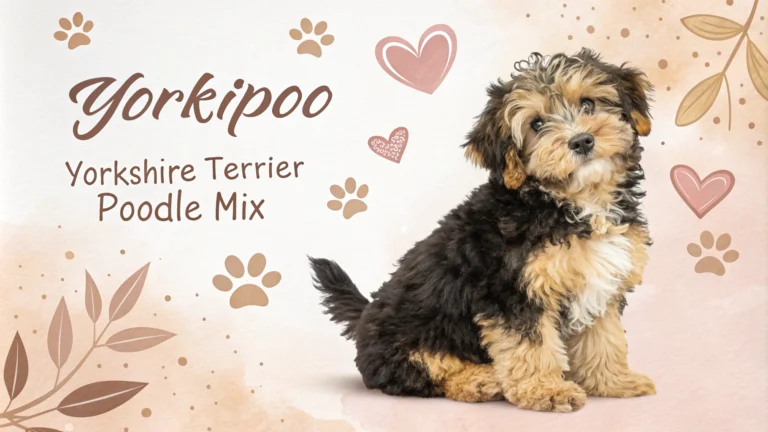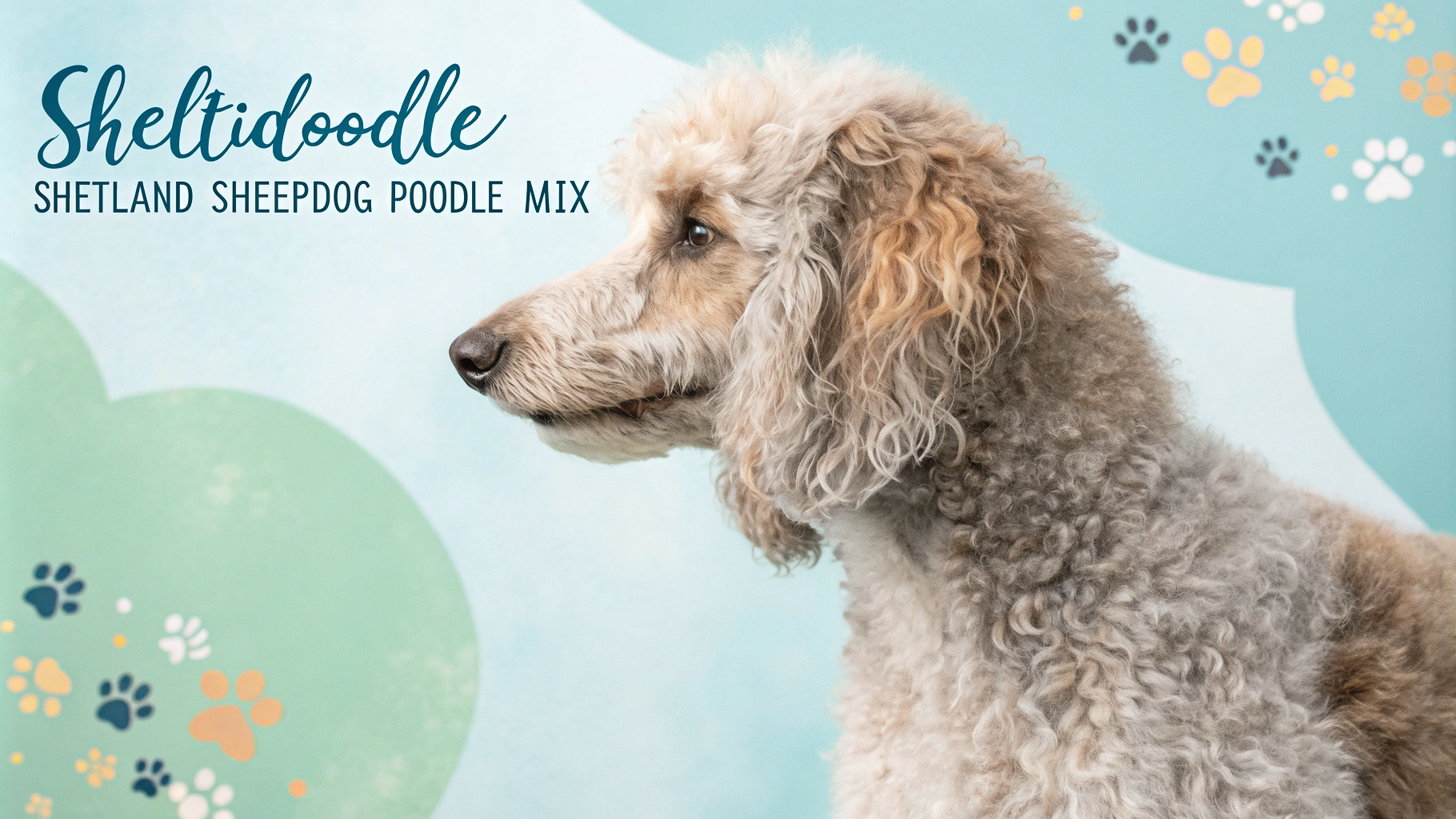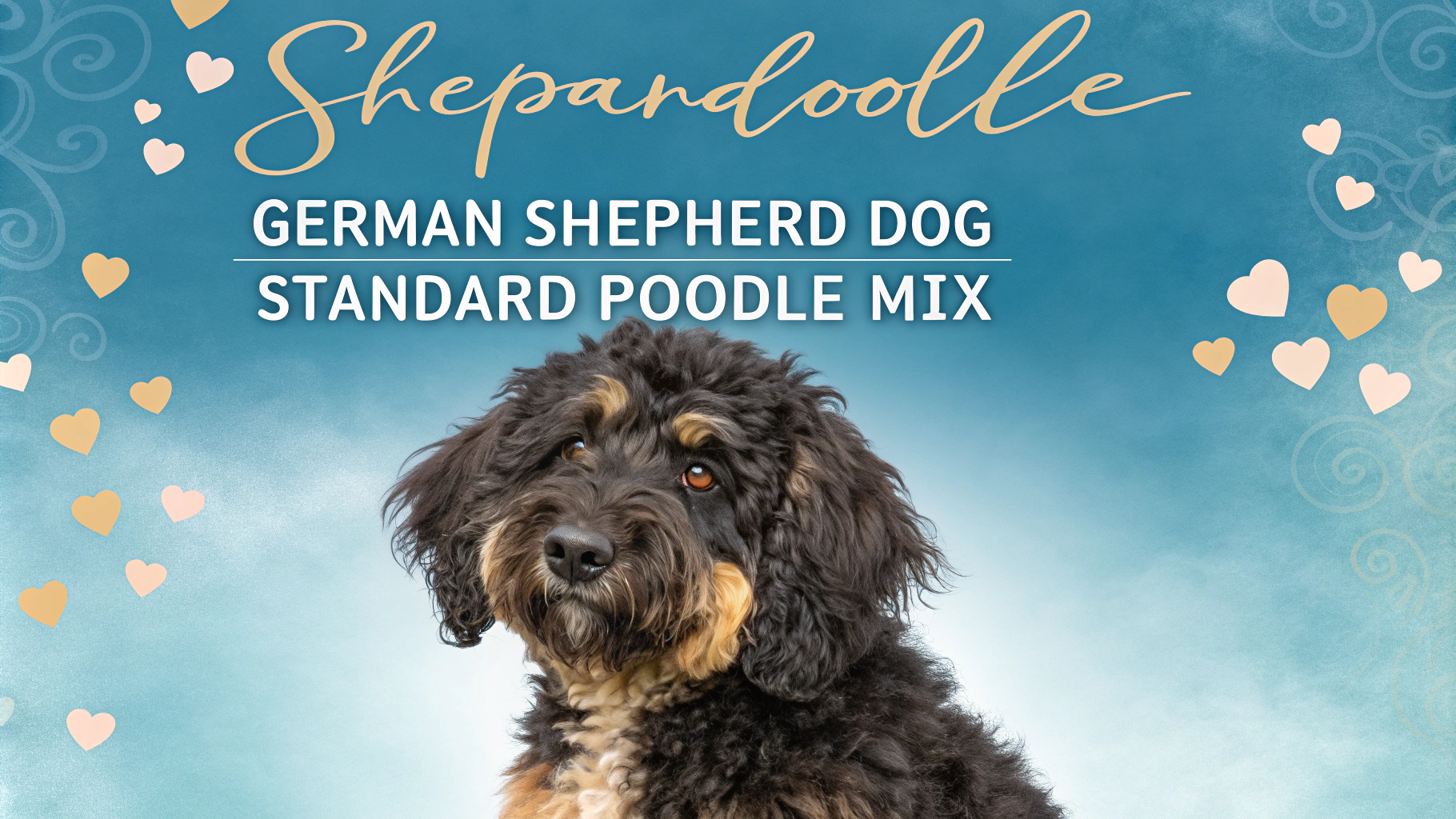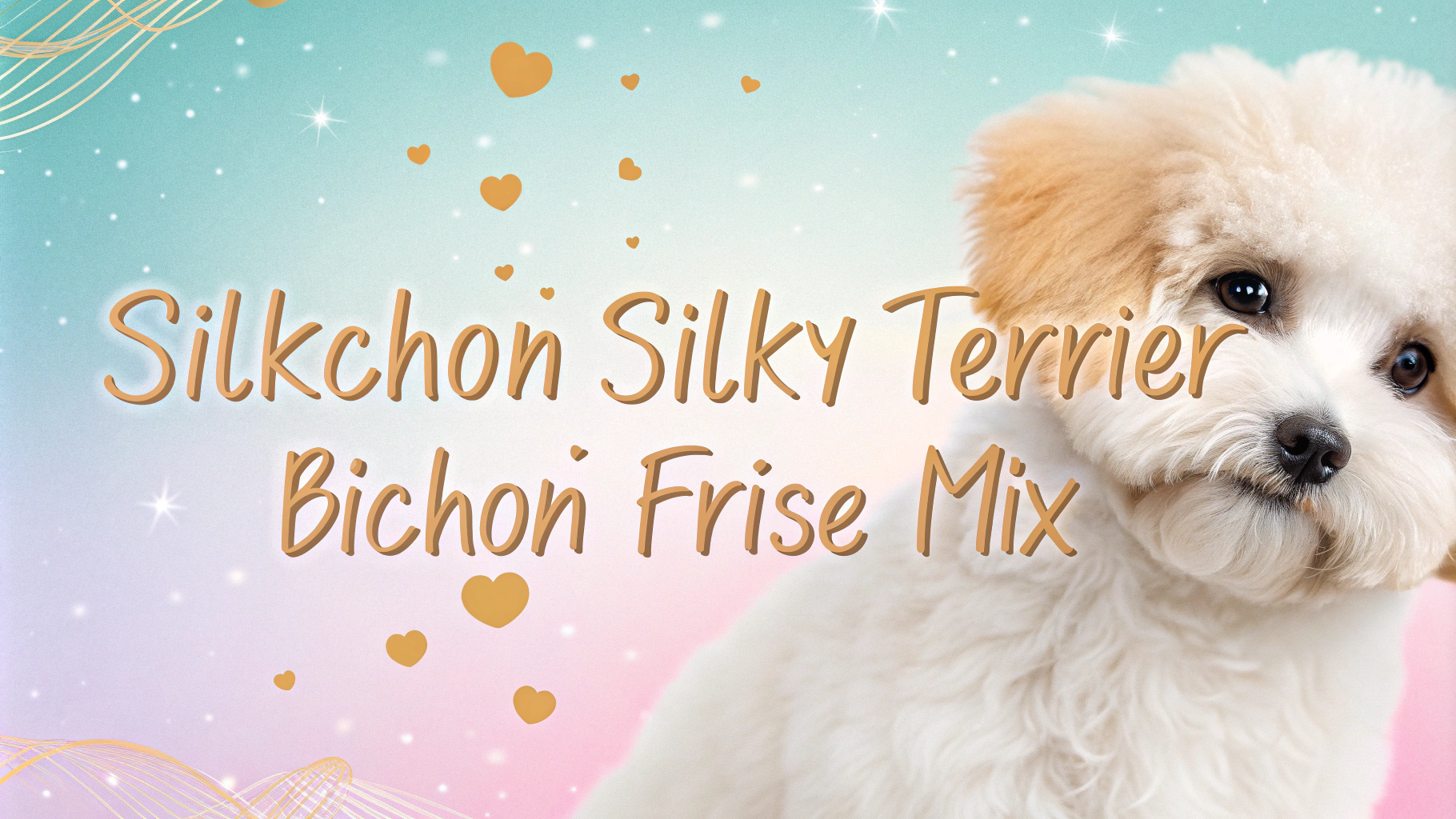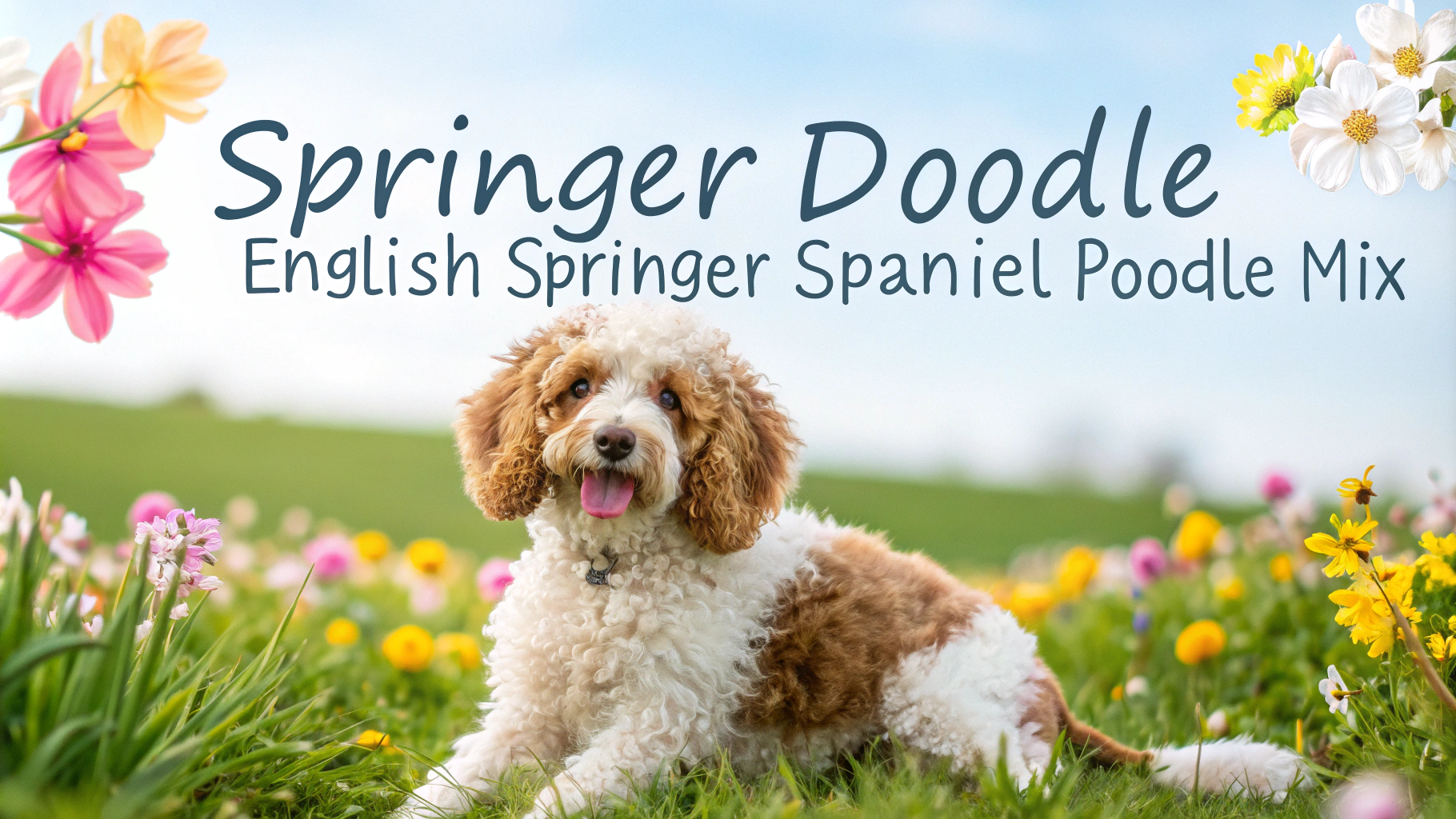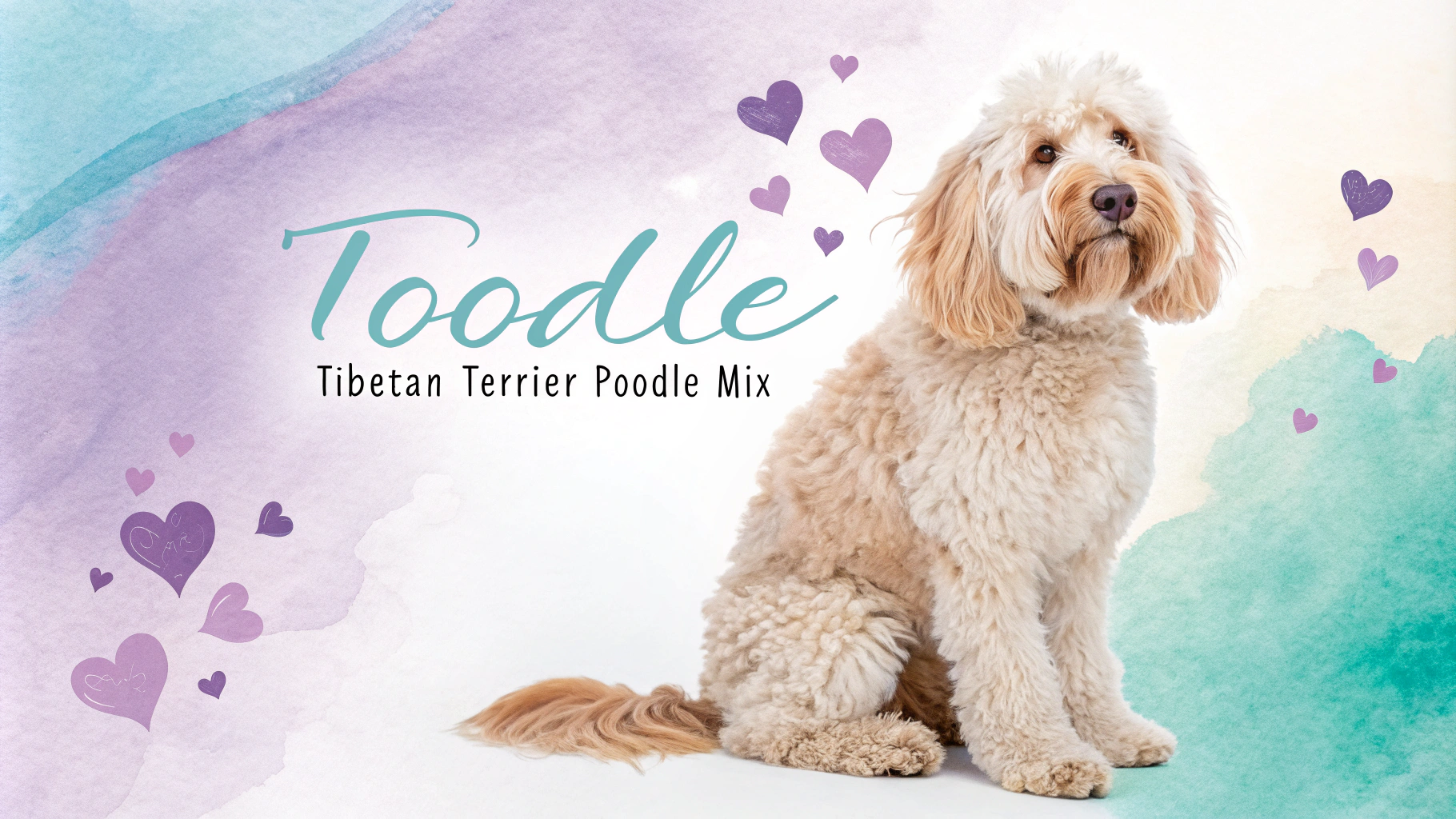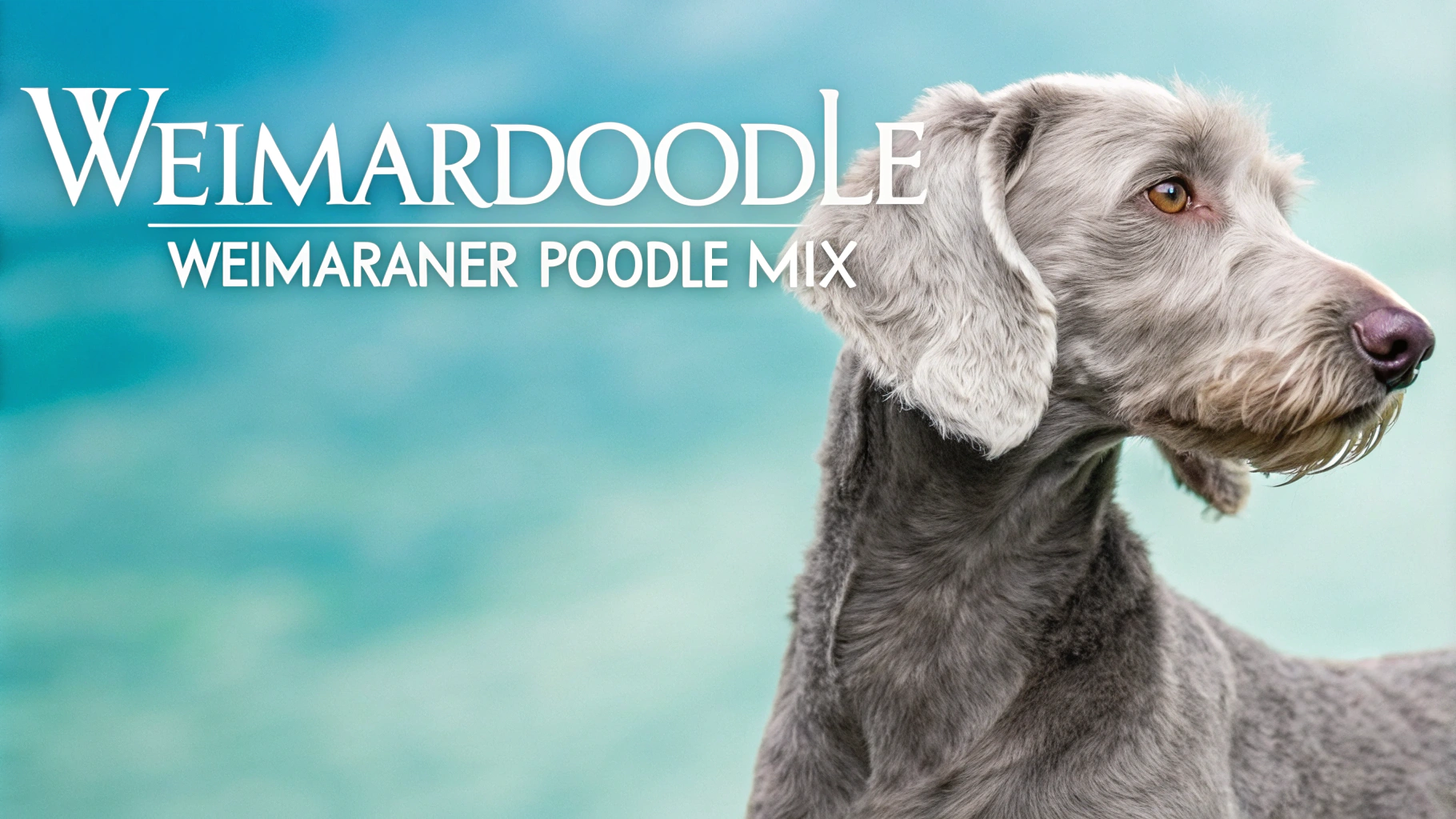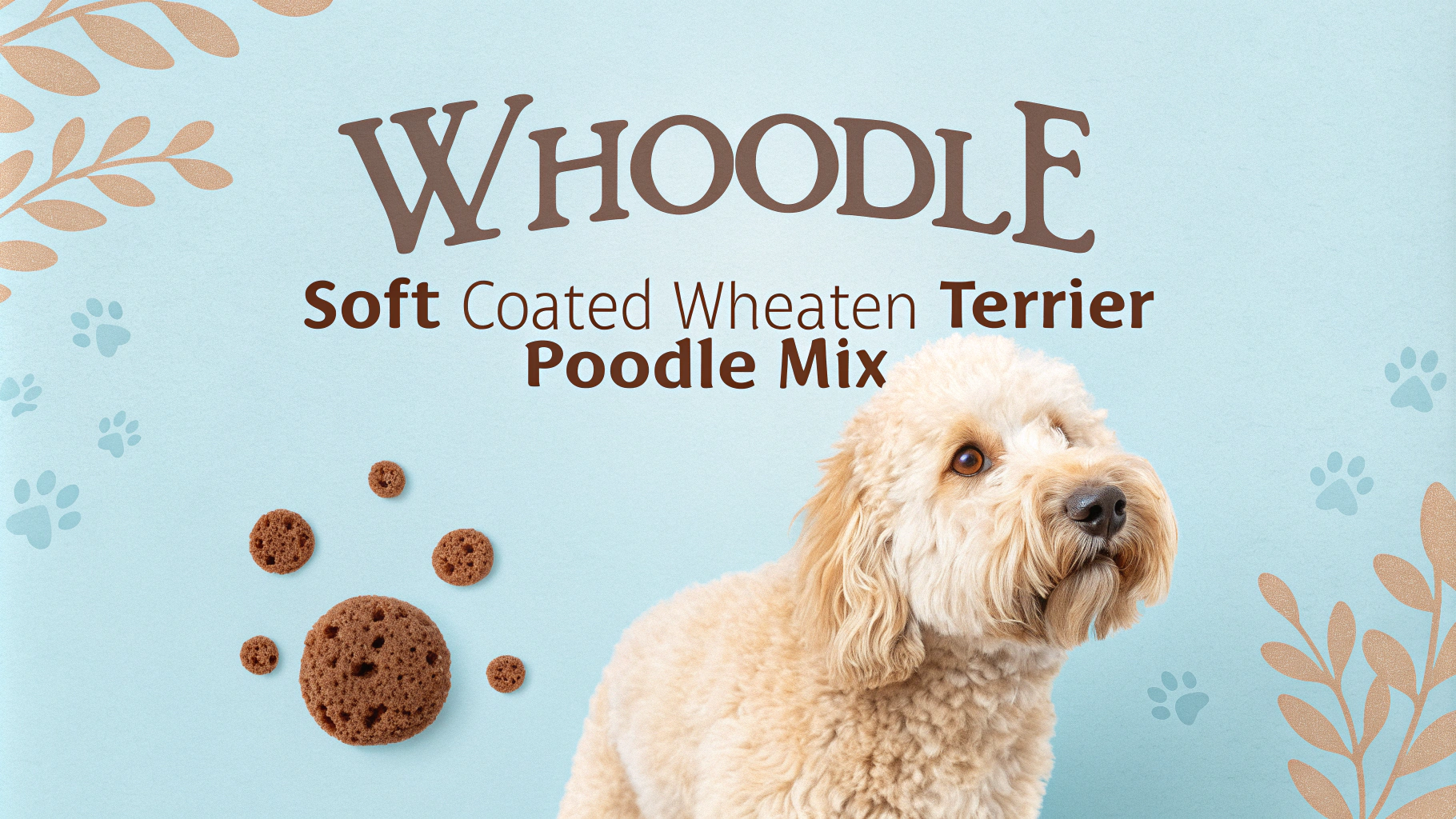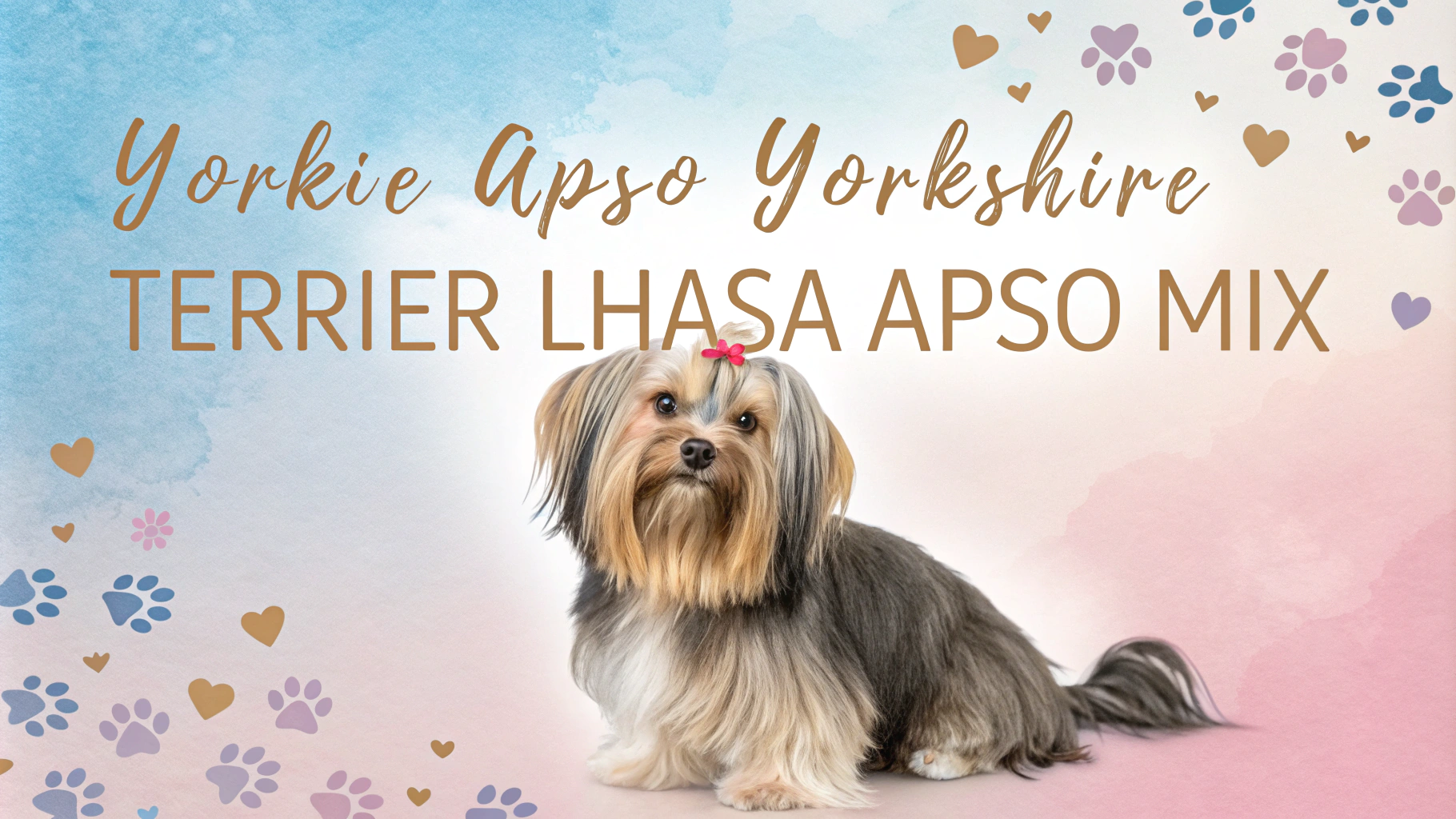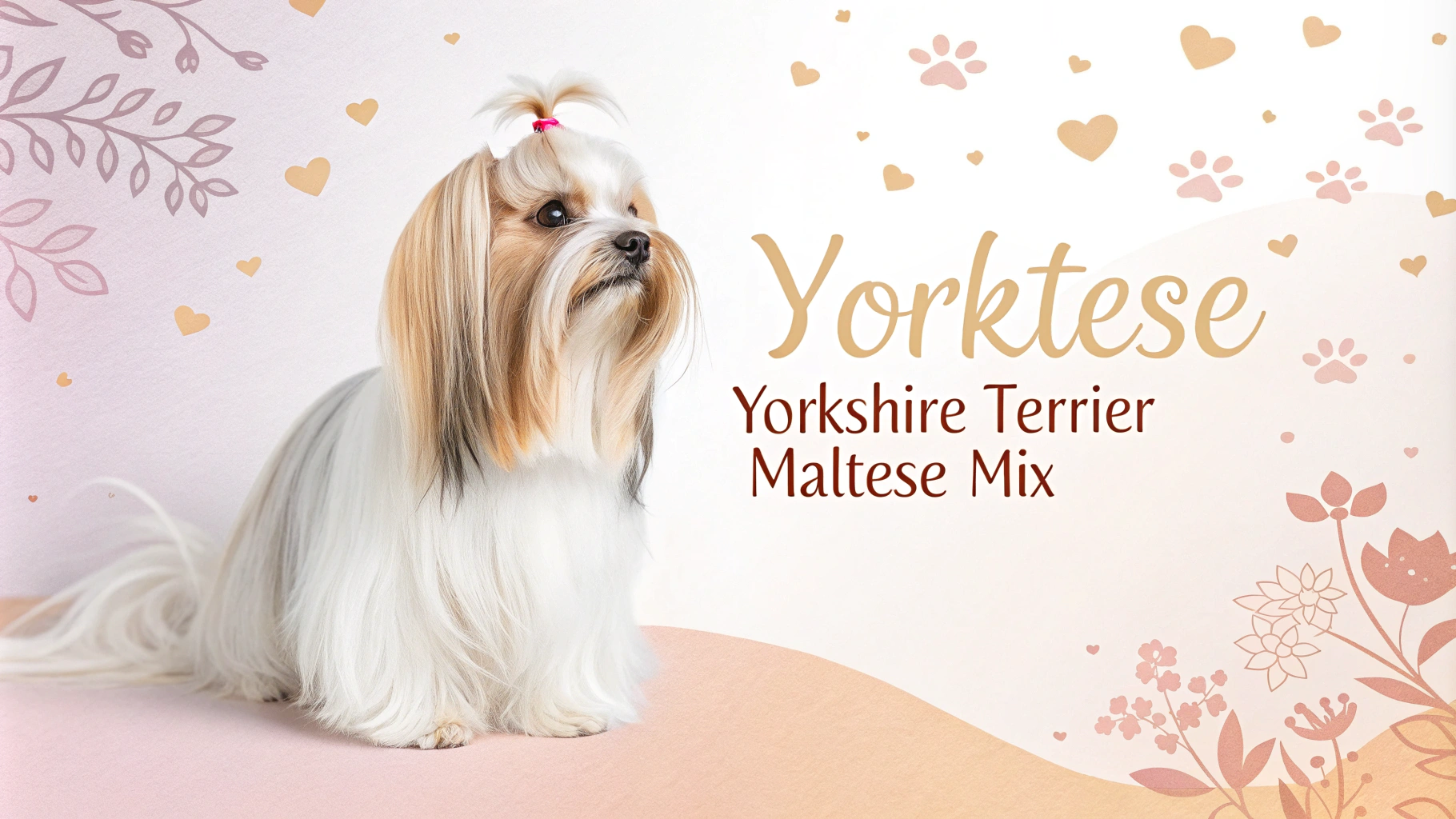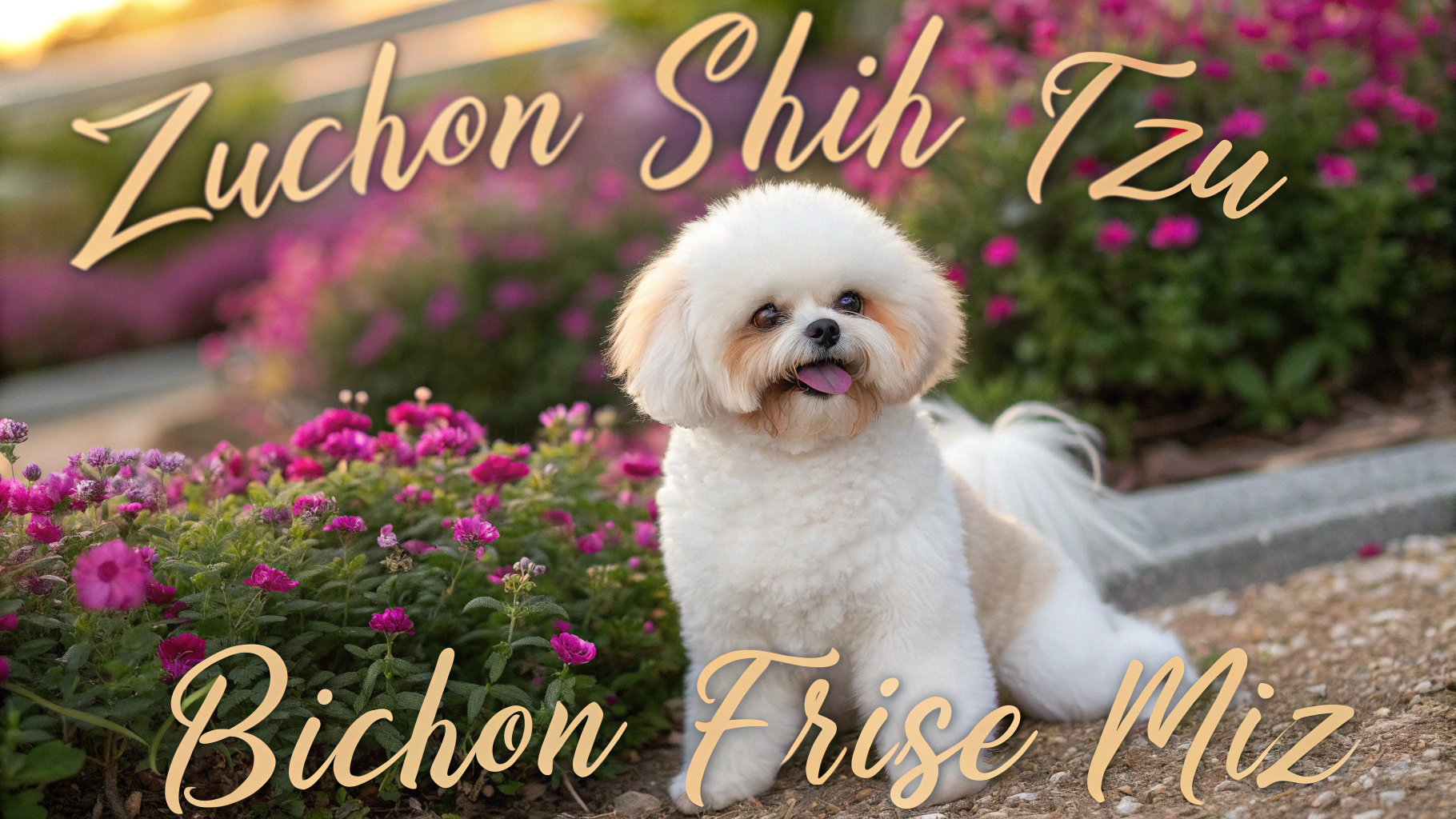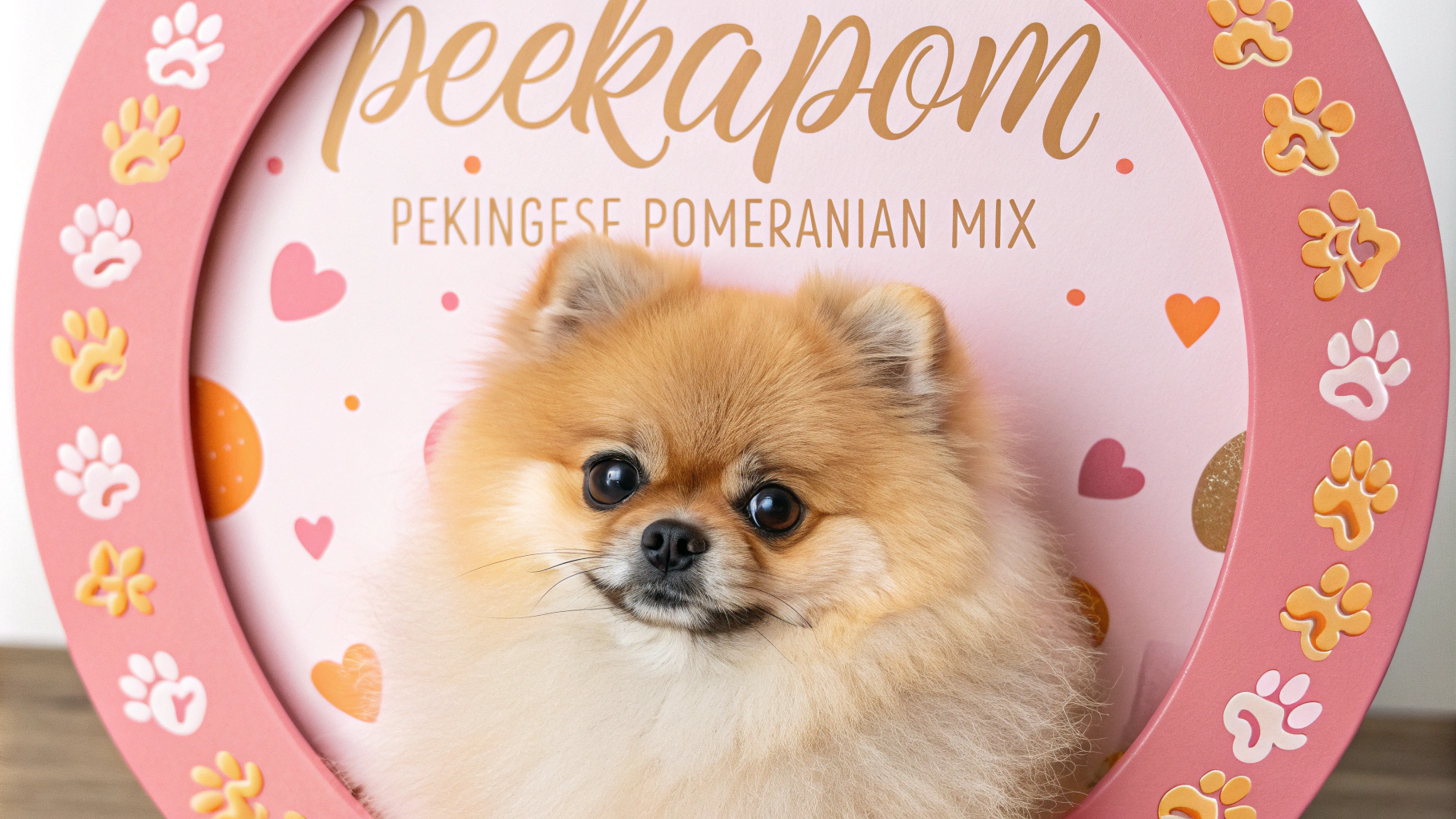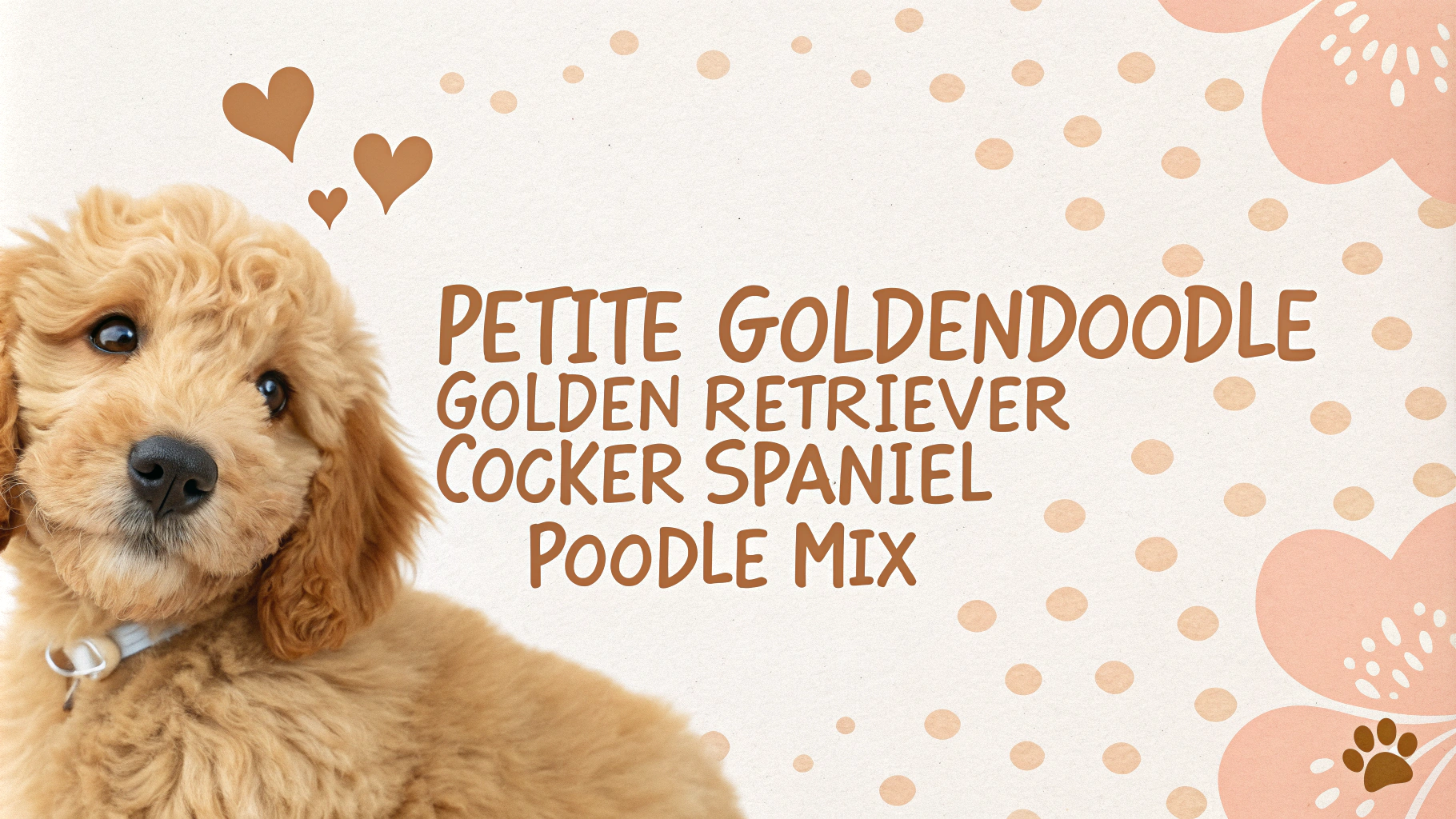The Yorkipoo is a delightful designer dog breed that combines the Yorkshire Terrier and Toy or Miniature Poodle. This small, affectionate hybrid inherits the best traits from both parent breeds, resulting in an intelligent, energetic, and loving companion. Yorkipoos are known for their hypoallergenic coat, making them an excellent choice for allergy sufferers. With their charming personality and adaptable nature, Yorkipoos have become increasingly popular as family pets and companions for individuals of all ages.
Key Facts
- Size: Small, typically 7-15 inches tall
- Weight: 3-14 pounds
- Lifespan: 10-15 years
- Coat: Soft, wavy to curly, hypoallergenic
- Colors: Various, including black, white, brown, cream, and parti-color
- Temperament: Affectionate, intelligent, energetic
- Good with children: Yes, when properly socialized
- Good with other pets: Generally yes, but early socialization is important
- Barking tendency: Moderate to high
- Exercise needs: Moderate
- Trainability: High
- Grooming: Regular grooming required
Character Traits
Yorkipoos are known for their vibrant and affectionate personalities, inheriting the best traits from both Yorkshire Terriers and Poodles. These small dogs are incredibly loving and form strong bonds with their families, often becoming devoted companions. They are intelligent and eager to please, making them highly trainable and responsive to commands. Yorkipoos are typically energetic and playful, enjoying interactive games and activities with their owners.
Despite their small size, Yorkipoos can be quite confident and outgoing, often displaying a fearless attitude. They are generally good with children and other pets when properly socialized, although their delicate size means interactions should be supervised. Yorkipoos can be alert and make excellent watchdogs, often barking to announce visitors or unfamiliar sounds. However, their friendly nature means they are more likely to greet strangers with enthusiasm than aggression.
These hybrid dogs are adaptable and can thrive in various living situations, from apartments to larger homes. They do, however, crave attention and companionship, which makes them prone to separation anxiety if left alone for extended periods. Yorkipoos are known for their intelligence and curiosity, often displaying problem-solving skills and a keen interest in their surroundings. This mental acuity, combined with their energetic nature, means they require regular mental and physical stimulation to prevent boredom and potential behavioral issues.
History & Origins
The Yorkipoo is a relatively new designer dog breed, believed to have originated in the United States during the late 20th century. Like many hybrid breeds, the exact origins of the Yorkipoo are not well-documented, but it is generally accepted that they were first intentionally bred in the 1990s. The primary goal in creating this mixed breed was to combine the desirable traits of the Yorkshire Terrier and the Toy or Miniature Poodle, particularly their intelligence, affectionate nature, and hypoallergenic coat properties.
Yorkshire Terriers, one of the parent breeds, originated in England during the 19th century. They were initially bred to catch rats in clothing mills and mines, but quickly gained popularity as companion dogs due to their small size and charming personalities. Poodles, the other parent breed, have a long history dating back to Germany and France, where they were originally bred as water retrievers. Over time, Poodles were bred down in size, resulting in the Toy and Miniature varieties often used in Yorkipoo breeding.
As the demand for smaller, hypoallergenic dogs increased, breeders saw an opportunity to create a dog that combined the Yorkshire Terrier’s spirited personality with the Poodle’s intelligence and low-shedding coat. The resulting Yorkipoo quickly gained popularity among dog enthusiasts and allergy sufferers alike. While not recognized by major kennel clubs as a purebred dog, the Yorkipoo has gained recognition from some hybrid and designer dog registries. Today, Yorkipoos continue to be bred both intentionally and sometimes accidentally, resulting in a diverse population of these charming mixed-breed dogs.
Health Concerns
Yorkipoos generally inherit good health from their parent breeds, but they can be prone to certain conditions. Common health issues include:
- Patellar luxation: A condition where the kneecap dislocates easily
- Progressive Retinal Atrophy (PRA): An inherited eye disorder that can lead to blindness
- Legg-Calve-Perthes Disease: A hip joint disorder more common in small breeds
- Hypothyroidism: An underactive thyroid gland
- Dental problems: Due to their small mouths, they may be prone to tooth overcrowding and decay
Regular veterinary check-ups, dental cleanings, and eye examinations are crucial for maintaining a Yorkipoo’s health. Responsible breeding practices can help reduce the likelihood of inherited conditions. It’s important to obtain health clearances for both parent breeds before considering a Yorkipoo puppy.
Exercise Needs
Yorkipoos are energetic and playful dogs that require moderate exercise to maintain their physical and mental well-being. Their exercise needs typically include:
- Daily walks: 20-30 minutes of brisk walking once or twice a day
- Playtime: Interactive games like fetch or tug-of-war for 15-20 minutes, 2-3 times a day
- Mental stimulation: Puzzle toys, training sessions, or hide-and-seek games to keep their minds active
While Yorkipoos don’t require intense exercise, they do benefit from regular activity to prevent boredom and potential behavior issues. Their small size makes them adaptable to various living situations, but they still need outlets for their energy. Indoor play can supplement outdoor activities, especially in bad weather or for apartment dwellers.
Space Requirements
Yorkipoos are adaptable dogs that can thrive in various living environments due to their small size. Their space requirements include:
- Living area: Suitable for apartments, small houses, or larger homes
- Outdoor space: A small yard is beneficial but not necessary if regular walks are provided
- Play area: A designated indoor space for toys and play sessions
- Sleeping area: A comfortable bed or crate in a quiet part of the home
While Yorkipoos can adapt to smaller spaces, they still need room to move around and play. They’re not suited for outdoor living and should be kept as indoor pets. Providing a safe, enclosed area for outdoor play is ideal, but not essential if they receive adequate exercise through walks and indoor activities.
Nutrition & Feeding
Proper nutrition is crucial for maintaining the health and longevity of a Yorkipoo. Their dietary needs include:
- High-quality dog food: Choose a premium brand formulated for small breeds with high energy levels
- Portion control: Typically 1/4 to 1/2 cup of dry food per day, divided into two meals
- Age-appropriate diets: Puppies, adults, and seniors have different nutritional requirements
- Treats: Use sparingly (no more than 10% of daily caloric intake) for training and rewards
Yorkipoos can be prone to obesity, so it’s important to monitor their food intake and adjust as needed based on their activity level and body condition. Fresh water should always be available. Consult with a veterinarian to determine the best diet plan for your individual Yorkipoo, as nutritional needs may vary based on age, weight, and health status.
Grooming Tips
Yorkipoos require regular grooming to maintain their coat and overall health. Their hair can grow quite long and may mat easily, so daily brushing is recommended to prevent tangles and keep their coat looking its best. Professional grooming every 6-8 weeks can help maintain a neat appearance and manageable coat length. Regular nail trimming, ear cleaning, and teeth brushing should also be part of their grooming routine.
Bathing should be done as needed, typically every 3-4 weeks, using a mild dog shampoo. Pay special attention to the facial area, as Yorkipoos can develop tear stains. Trimming around the eyes, ears, and paw pads helps maintain cleanliness and prevents matting. Some owners opt for puppy cuts or other shorter hairstyles to reduce grooming time and maintain a neater appearance.
It’s important to start grooming routines early in the Yorkipoo’s life to help them become accustomed to the process. Regular grooming sessions also provide an opportunity to check for any skin issues, lumps, or other health concerns.
Training Approach
Yorkipoos are intelligent dogs that generally respond well to positive reinforcement training methods. They can be eager to please but may also inherit some stubbornness from their Yorkshire Terrier lineage. Consistency, patience, and gentle guidance are key to successful training.
Early socialization is crucial for Yorkipoos to develop into well-rounded adults. Expose them to various people, animals, and environments from a young age. Basic obedience training should begin as early as possible, focusing on commands like sit, stay, come, and leash walking. These small dogs can excel in agility and trick training, which can provide mental stimulation and strengthen the bond between dog and owner.
Housebreaking can sometimes be challenging with small breeds like Yorkipoos. A consistent schedule, frequent outdoor trips, and positive reinforcement when they eliminate outside can help establish good habits. Crate training can also be beneficial for housebreaking and providing a safe space for the dog. Remember to keep training sessions short and fun to maintain the Yorkipoo’s interest and prevent boredom or frustration.
